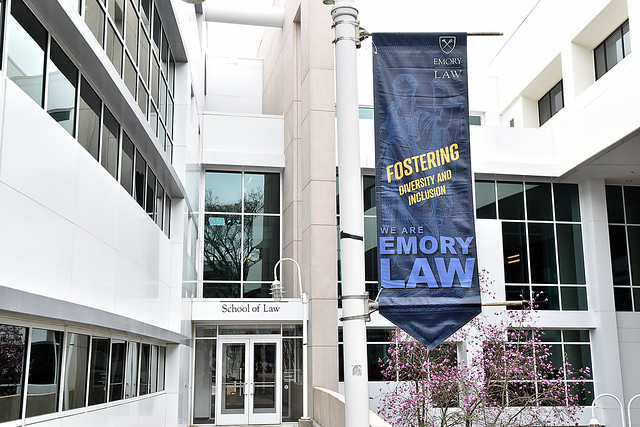The Emory Law Journal (ELJ) produces six issues a year, featuring articles written by notable legal scholars and student comments that cover a broad range of legal topics. ELJ is entirely student edited and focuses on enhancing the reputation of the Emory University School of Law as well as serving as a forum for legal activism by demonstrating where the law should be.
History
Founded in 1952, the Emory Law Journal was the first journal sponsored by Emory University School of Law. Originally titled the Journal of Public Law, the Journal specialized in public law fields. In 1974, the Editorial Board changed the name of the Journal to the Emory Law Journal and pledged to widen the editorial scope of the Journal to include matters of general law, while maintaining an emphasis on public law. In 1978, the Editorial Board decided to abandon an editorial policy emphasizing the publication of pieces that explored the political and sociological aspects of the law. Since then, the Journal has been restricted editorially only by the limits of legal scholarship and interest. Today, ELJ annually publishes six issues on average, featuring professional and student articles that cover a broad range of legal topics. Additionally, ELJ hosts the Randolph W. Thrower Symposium in the spring semester, which brings together legal scholars from across the country to discuss timely legal topics. In 2014, ELJ launched an online companion, Emory Law Journal Online to offer authors an additional route to publication for shorter scholarly pieces.
The Goals of ELJ are three-fold:
Goal 1
To foster excellence in legal research, writing, analysis, and editing; to provide the legal community with reliable and thoughtful commentary on new developments and trends in the law.

Goal 2
To enhance the reputation of the Emory University School of Law.

Goal 3
To not only provide a valuable research tool to practitioners by illuminating the current state of the law, but also to serve as a forum for legal activism by demonstrating where the law should be.
